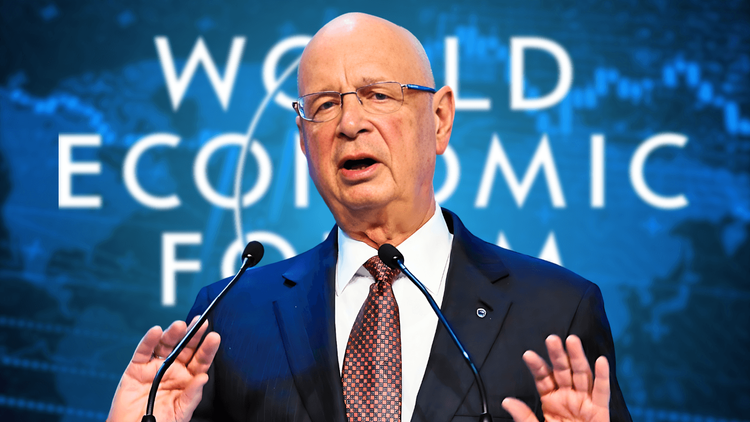Klaus Schwab Steps Back: A New Chapter for the World Economic Forum
Schwab's Departure Marks a New Era for the World Economic Forum

Klaus Schwab, the visionary behind the World Economic Forum (WEF), has announced that he will be stepping back from his executive role. This significant shift marks the end of an era for the global institution he founded over five decades ago.
Klaus Schwab: The Visionary Founder
Klaus Schwab's journey to becoming a pivotal figure in global economics began long before the establishment of the WEF. Born in Germany in 1938, Schwab's academic and professional pursuits laid the groundwork for his future endeavors. In 1971, Schwab founded the European Management Forum, which later evolved into the World Economic Forum. His vision was to create a platform for public and private sector leaders to come together and address global issues collaboratively. From its modest beginnings, the WEF has grown into a major global event, attracting thousands of influential figures to its annual meeting in Davos, Switzerland. This transformation reflects Schwab’s ability to adapt and innovate in response to global needs.
The Impact of Klaus Schwab on Global Affairs
Schwab’s contributions to global affairs are immense. He has fostered dialogues that bridge gaps between governments, corporations, and civil societies, promoting policies and partnerships that drive positive change. One of Schwab’s key legacies is his emphasis on public-private cooperation. Under his leadership, the WEF has championed initiatives that leverage the strengths of both sectors to tackle complex global challenges. Schwab’s leadership has seen the WEF evolve from a European-centric forum to a truly global institution. His ability to navigate cultural shifts and steer the organization through changing political landscapes has been instrumental in its sustained relevance.
The Transition: Stepping Down from Executive Role
In a recent email to staff, Schwab announced his decision to step down as Executive Chairman. This move, pending approval by the Swiss government, will see him transition to the role of Non-Executive Chairman by January 2025. At 86, Schwab’s decision to step back from day-to-day operations is likely influenced by a desire to ensure a smooth transition of leadership and to focus on broader strategic goals. As Non-Executive Chairman, Schwab will continue to influence the WEF’s direction but will delegate executive responsibilities to the leadership team, led by President Børge Brende.
The Future of the WEF
The WEF is undergoing significant changes in its governance structure. This transformation aims to solidify its position as the leading global institution for public-private cooperation. The Forum is evolving from a convening platform to a more robust institution, enhancing its impact on global policy and economic development. Børge Brende, the current President, has been instrumental in this transition. His leadership is expected to guide the WEF through this transformative phase.
Speculations and Succession
The question of Schwab’s successor has been a topic of much speculation. While no successor has been named, several high-profile figures within the WEF are considered potential candidates. Both internal stakeholders and external analysts have weighed in on possible successors, reflecting the high stakes of this leadership transition. The WEF’s executive board, under Brende’s leadership, has taken on greater responsibilities, ensuring continuity and stability during this transition period.
The WEF's Evolving Focus
In recent years, the WEF has shifted its focus from liberal politics towards a more centrist approach. This change is reflective of broader political and economic trends. The Forum has adapted to the changing political landscape, addressing new challenges and opportunities in the global economy. The WEF continues to play a crucial role in responding to global economic challenges, promoting sustainable development and inclusive growth.
The Annual Davos Meeting
The annual meeting in Davos has become synonymous with the WEF. It serves as a barometer for global economic and political trends. Each year, the meeting attracts dozens of high-ranking world leaders and CEOs, fostering critical discussions and partnerships. Recent meetings have addressed pressing issues such as climate change, digital transformation, and geopolitical tensions, reflecting the WEF’s broad agenda.
WEF's Financials and Operations
Despite being a nonprofit, the WEF is a financial powerhouse. It reported nearly $500 million in revenue for the year ending March 2023, with substantial reserves in cash. The Forum’s operational structure supports its extensive range of initiatives, from public-private partnerships to research and policy advocacy. The WEF spearheads numerous projects aimed at addressing global challenges, from climate action to digital innovation.
Schwab’s Family Influence
Schwab’s children hold significant positions within the WEF, reflecting the family’s deep involvement in the organization’s operations. Hilde Schwab, Klaus’s wife, has played a pivotal role in the WEF’s foundation and awards ceremonies, contributing to its cultural and philanthropic initiatives. The Schwab family’s legacy is deeply intertwined with the WEF, ensuring that its founding principles continue to guide its future direction.
Public Perception and Criticism
The WEF and Schwab have faced criticism on various fronts, from accusations of elitism to questions about their influence on global policy. Public and media perceptions of the WEF are mixed, with praise for its initiatives balanced against skepticism about its impact. Schwab has consistently defended the WEF’s mission and approach, emphasizing its role in fostering global cooperation and addressing critical issues. The Future of Global Public-Private Cooperation
Looking ahead, the WEF aims to strengthen its role in global public-private cooperation, addressing emerging challenges with innovative solutions. The Forum’s strategic goals include promoting sustainable development, enhancing digital resilience, and fostering inclusive economic growth. While the WEF faces numerous challenges, from political polarization to economic uncertainty, it also has significant opportunities to drive positive change on a global scale.
Conclusion
Klaus Schwab’s decision to step back marks a pivotal moment for the World Economic Forum. His legacy as a visionary leader who transformed the WEF into a global powerhouse is secure. As the Forum transitions to new leadership under Børge Brende, it is poised to continue its mission of fostering public-private cooperation and addressing the world’s most pressing challenges.






